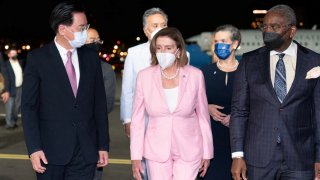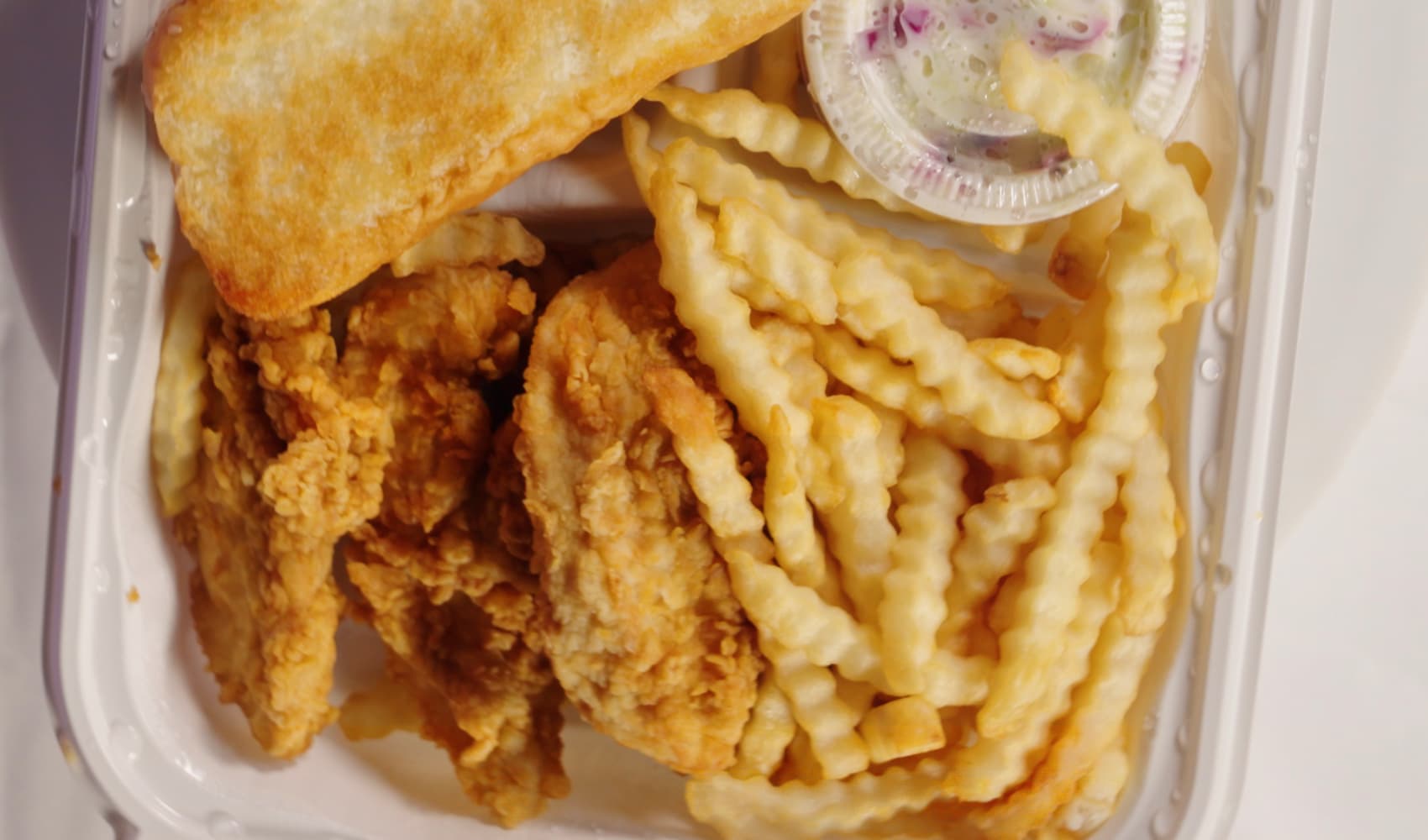
- House Speaker Nancy Pelosi landed in Taiwan's capital of Taipei on Tuesday night for a controversial visit that has infuriated Beijing and strained the already tense U.S.-China relationship.
- After warning Pelosi for weeks not to come to the disputed territory China responded Tuesday by announcing new import bans on certain Taiwanese goods.
- The Chinese military has also flexed its muscle with recent live-fire exercises just 80 miles from Taiwan, and the deployment Tuesday of fighter jet to the Taiwan Strait
WASHINGTON -- House Speaker Nancy Pelosi landed in Taiwan's capital of Taipei on Tuesday night, kicking off a controversial visit that had already strained the testy relationship between Beijing and Washington before it even began.
China has spent weeks warning Pelosi not to come to the disputed territory, which Beijing considers a province of China, but which considers itself an independent nation.
These warnings escalated into actions during the hours ahead of Pelosi's arrival, which marked the first time in 25 years that an American House speaker has visited Taiwan. The visit will reportedly last almost 24 hours.
Hua Chunying, China's assistant minister of foreign affairs, said in a string of tweets Tuesday that Pelosi's visit to Taiwan was a "major political provocation."
On Tuesday, China reportedly levied new import bans on more than 100 Taiwanese products, an apparent effort to impose a quick economic cost on Taipei for its role in Pelosi's high-profile visit.
The Chinese military also flexed its muscle by holding live-fire exercises all day Saturday, just 80 miles from Taiwan.
Money Report
Get a weekly recap of the latest San Francisco Bay Area housing news. >Sign up for NBC Bay Area’s Housing Deconstructed newsletter.
On Tuesday, as Pelosi's visit drew near, the People's Liberation Army deployed fighter jets to the Taiwan Strait that flew very close to the center line of the strait, which is rarely crossed.
As Pelosi landed Tuesday night, Chinese state-affiliated media announced that more live-fire exercises would be conducted over the coming weekend -- notably, after Pelosi has left the area.
For China experts, these military drills and bellicose public statements come as little surprise.
"This is just something they have to do," said Andrew Mertha, director of the China Global Research Center at the Johns Hopkins School of Advanced International Studies.
"I would frankly be very surprised if Beijing does anything physically threatening in any meaningful way. I mean, it's not out of the question, but I would really be surprised," he said in an interview with CNBC.
"What is likely to happen is some sort of subsequent actions to demonstrate that China can do something if it wants to," said Mertha. "And that will be something as much for the domestic audience within China as for the international one."
Later this year, Chinese leader Xi Jinping is expected to begin an unprecedented third term as leader of the Chinese Communist Party.
Xi's need to consolidate public support and power within his party are the lens through which we should be looking at China's geopolitical actions, diplomats and experts say.
And this is exactly what makes Pelosi's visit so provocative.
After weeks of Pelosi refusing to confirm or deny or discuss the Taiwan visit, The Washington Post published a scathing op-ed by Pelosi just as she landed Tuesday.
Taiwan, she wrote, "is under threat" from Beijing, which she painted as an existential danger to free people everywhere.
"We take this trip at a time when the world faces a choice between autocracy and democracy," she said. "We cannot stand by as the CCP proceeds to threaten Taiwan — and democracy itself."
"Our congressional delegation's visit should be seen as an unequivocal statement that America stands with Taiwan, our democratic partner, as it defends itself and its freedom."
But while Pelosi's op-ed was aimed squarely at Xi, this is not the same strategy that President Joe Biden, her fellow Democrat, has chosen to pursue.
Biden's approach to China is one that seeks to maintain a stable, predictable relationship with America's biggest trading partner, while also acknowledging that Washington and Beijing are strategic adversaries.
Officially, the Biden administration was careful in recent weeks to avoid directly saying whether the president agreed with Pelosi's decision to visit Taiwan. But unofficially, the White House and the Pentagon made little secret of their opposition to it.






